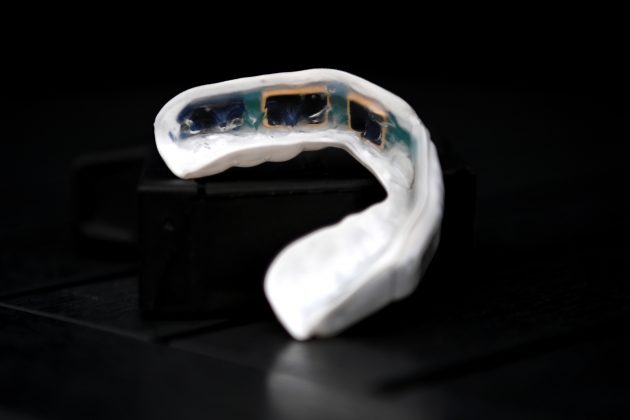It will be first introduced in the upcoming WXV matches
In their latest shift in the Head Injury Assessment (HIA) process, World Rugby will be introducing smart mouthguard technology to inform medics in real-time if an athlete has experienced “a high level of acceleration which could lead to an injury”. It will be first introduced in the upcoming WXV matches in October and November, before being rolled out worldwide.
Related: Inaugural WXV schedule confirmed
According to World Rugby, an initial pot of €2 million will be used to aide certain teams use of smart mouthguard technology supplied by Prevent Biometrics.
Elite players must wear smart mouthguards to be able to use the in-game HIA1 test and the mouthguards will be needed in training as well as matches, in order to best track and tailor athlete’s progress. According to the governing body, Bluetooth messages from the gumshields will reach match-day doctors, informing them of any high-velocity events and are therefore in need of further assessment.
The plan in future is for this scheme to be used in the community game, with reports stating that ‘boil-and-bite’ versions of the gumsheld tech are available.
World Rugby Chief Medical Officer Eanna Falvey said: “The latest scientific research and expert opinion is telling us one thing – reduce the forces players experience on their heads at all levels of the game. That is exactly what we’re doing.
“The advances in smart mouthguard technology mean elite players will be better cared for than ever before. We are taking smart mouthguards out of the realm of medical research and putting them into the world of everyday performance management to continue to manage player welfare in the best way possible.”
Other World Rugby changes around brain injury
The sport’s governing body have also agreed to:
- A recommendation that players at all levels of the sport wear a mouthguard, after research in ice hockey found that as well as protecting against dental injuries, mouthguards can reduce the risk of a concussion by 20%.
- A review of World Rugby’s guidelines on return to play after a concussion in community rugby, extending the time players will sit out to 21 days. Earlier this year, the international federation took action in the community game by confirming a global opt-in trial of a lower tackle height which will see most community players tackling lower in 2023-24 seasons.
- An update to World Rugby’s position on long-term neurodegenerative disease and repeated head impacts, which acknowledges the importance of focussing not just on concussion but forces to the head which may not cause medical symptoms.
Criticism of the statements
According to brain injury researcher and campaigner Dr Willie Stewart, World Rugby’s use of language around mouthguards reducing concussion is “specifically, not true in rugby”.
"…mouthguards can reduce the risk of a concussion by 20 per cent."
Wow.
Suggest someone @RugbySciNetwork needs to look more closely at the evidence and advise @WorldRugby
Very limited data to date show:
a) not true, on any level.
b) specifically, not true in rugby https://t.co/ENO43mUfZN— Dr Willie Stewart also available on Threads (@WillStewNeuro) October 10, 2023
He took to social media to respond to this latest missive.
So what do you think? Let us know your views on social media or ar rugbyworldletters@futurenet.com.
Download the digital edition of Rugby World straight to your tablet or subscribe to the print edition to get the magazine delivered to your door.





